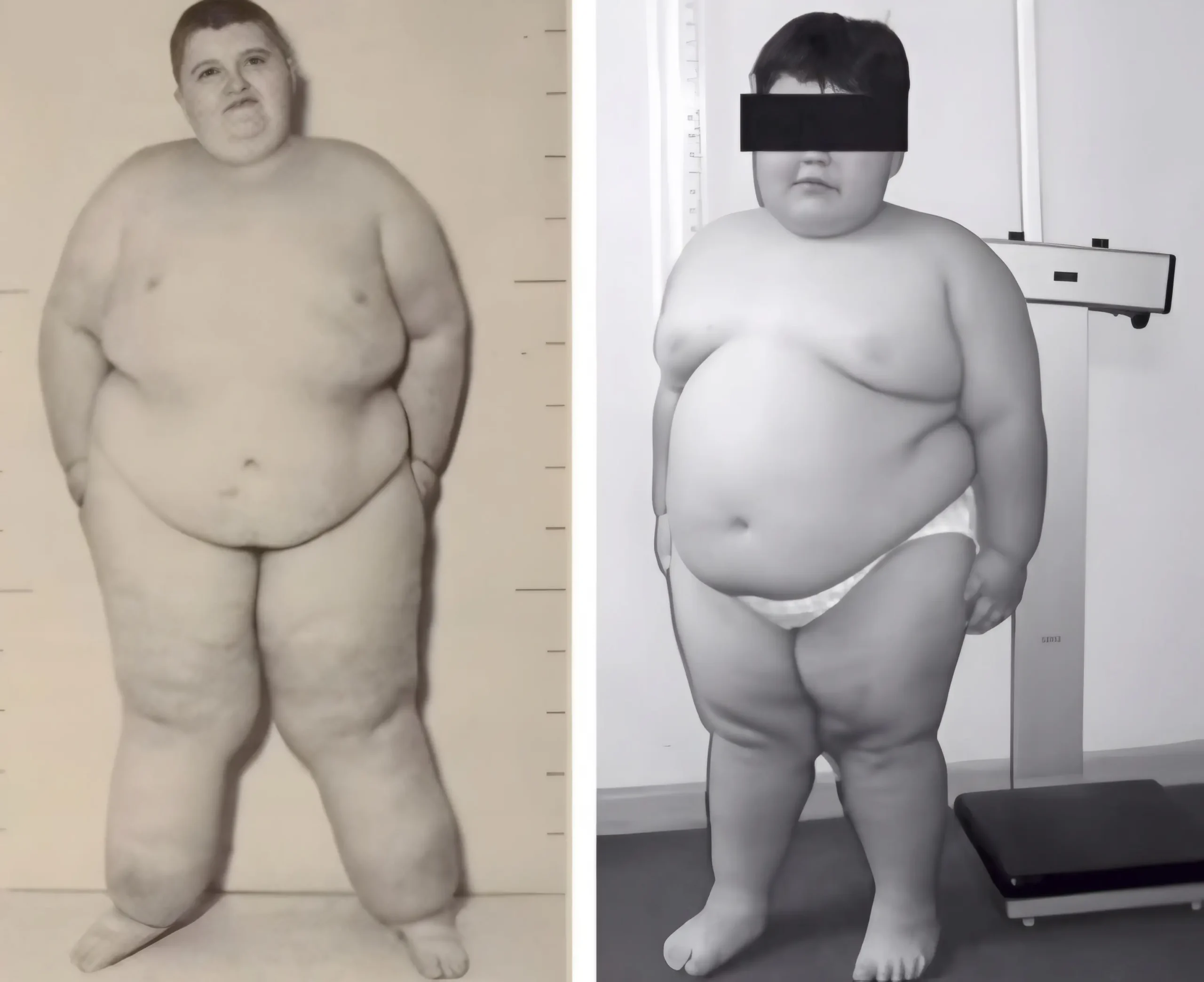What is the most likely diagnosis?

A. Beckwith-Wiedemann Syndrome
B. Congenital Hypothyroidism
C. Angelman Syndrome
D. Prader-Willi syndrome
Answer: D. Prader-Willi syndrome
Explanation:
The children in the image show marked obesity with characteristic body habitus → this is most consistent with Prader–Willi syndrome.
Prader–Willi syndrome: Genetic disorder due to loss of paternal allele on chromosome 15q11-q13.
Features:
-Hypotonia and poor feeding in infancy → later develops hyperphagia → obesity.
-Short stature.
-Hypogonadism.
-Developmental delay / intellectual disability.
-Almond-shaped eyes
-Small hands/feet.
Other options:
A. Beckwith–Wiedemann syndrome → Overgrowth disorder, macroglossia, organomegaly, neonatal hypoglycemia, risk of Wilms tumor. Not morbid obesity.
B. Congenital hypothyroidism → Puffy face, macroglossia, umbilical hernia, constipation, delayed milestones. Not severe obesity.
C. Angelman syndrome → “Happy puppet” syndrome, inappropriate laughter, seizures, ataxia, severe intellectual disability. Not obesity.